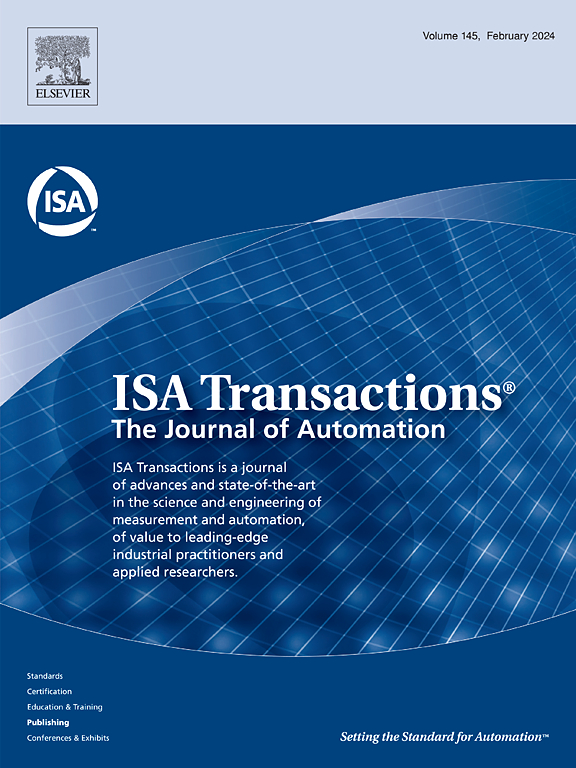Learning-based safety-guaranteed sliding mode affine formation maneuver control of quadrotors vulnerable to cyber-attacks
IF 6.5
2区 计算机科学
Q1 AUTOMATION & CONTROL SYSTEMS
引用次数: 0
Abstract
This article studied the actor–critic learning scheme for safe leader–follower affine formation maneuver control of networked quadrotors under external disturbances, sensor deception attacks, and injection attacks on the actuators. The followers aim to track formation maneuvers such as scaling, shearing, translation, and rotation determined by the leaders. Motivated by increasing safety and performance requirements during formation maneuvering, the dynamic states of the quadrotors are constrained within prescribed safety constraints. A barrier Lyapunov function is employed to ensure that the safety constraints are not violated. Then, a distributed sliding mode control with actor–critic learning is formulated to facilitate accurate leader–follower affine formation maneuvers and reject malicious cyber-attack signals. The input gains that appear due to the attacks might corrupt the control direction. The Nussbaum gain function is coupled to the controller to tackle this problem. The actor system estimates the uncertain dynamics and malicious attack signals, while the critic network evaluates the control performance through the estimated long-term performance index. The overall stability of the closed-loop system has been proven to be bounded using the Lyapunov stability theorem. Finally, simulation results demonstrate the capability of the presented control method.
基于学习的易受网络攻击的滑模仿射编队机动控制。
研究了网络四旋翼机在外部干扰、传感器欺骗攻击和执行器注入攻击下的leader-follower仿射编队安全机动控制的参与者批评学习方案。follower的目标是跟踪由leader决定的缩放、剪切、平移和旋转等编队机动。在编队机动过程中,为了提高安全性和性能要求,四旋翼飞行器的动态状态被限制在规定的安全约束范围内。使用屏障Lyapunov函数来确保不违反安全约束。在此基础上,提出了一种具有actor-critic学习的分布式滑模控制方法,以促进精确的leader-follower仿射编队机动,并拒绝恶意网络攻击信号。由于攻击而出现的输入增益可能会破坏控制方向。努斯鲍姆增益函数耦合到控制器来解决这个问题。行动者系统对不确定动态和恶意攻击信号进行估计,而批评家网络通过估计的长期性能指标来评估控制性能。利用李雅普诺夫稳定性定理证明了闭环系统的整体稳定性是有界的。最后,仿真结果验证了所提控制方法的有效性。
本文章由计算机程序翻译,如有差异,请以英文原文为准。
求助全文
约1分钟内获得全文
求助全文
来源期刊

ISA transactions
工程技术-工程:综合
CiteScore
11.70
自引率
12.30%
发文量
824
审稿时长
4.4 months
期刊介绍:
ISA Transactions serves as a platform for showcasing advancements in measurement and automation, catering to both industrial practitioners and applied researchers. It covers a wide array of topics within measurement, including sensors, signal processing, data analysis, and fault detection, supported by techniques such as artificial intelligence and communication systems. Automation topics encompass control strategies, modelling, system reliability, and maintenance, alongside optimization and human-machine interaction. The journal targets research and development professionals in control systems, process instrumentation, and automation from academia and industry.
 求助内容:
求助内容: 应助结果提醒方式:
应助结果提醒方式:


